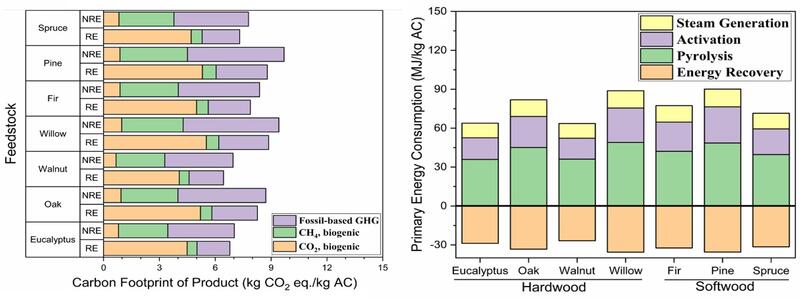New Project:
Assessing the Barriers and Opportunities for Establishing a Resilient Green Graphite Supply Chain in the United States (2024-2027)
Graphite is an essential component in clean energy technologies, including lithium-ion batteries, and is primarily imported into the United States. Synthetic graphite could be a more sustainable source. A major challenge is the current reliance on synthetic graphite production on fossil fuel-based feedstocks. Recent advancements in using waste biomass or plastic have made “green” synthetic graphite a more appealing option for domestic supply capacity. In this project, we will identify and analyze key industrial, policy, and regulatory opportunities and barriers. We will evaluate the environmental, economic, and societal implications of scaling up the synthesis of green graphite. Our goal is to pave the way for a resilient and sustainable green graphite supply chain within the United States. This project is sponsored by the Alfred P. Sloan Foundation.
CAREER: Biochar Systems for Sustainable Applications in the Food-Energy-Water Nexus
Biochar is a carbon-rich solid byproduct of thermochemical biomass conversions. It has potential applications in food, energy, and water systems. This project aims to advance potential biochar applications by (1) using artificial intelligence (machine learning) approaches to predict process data and life cycle assessment (LCA) of various combinations of biomass feedstocks, conversion pathways, and applications of biochar; (2) building an integrated framework for modeling and analysis of biochar systems in the food-energy-water (FEW) nexus; and (3) demonstrating the framework through real-world case studies in different geographic, temporal, and socioeconomic contexts.
This project is supported by the U.S. National Science Foundation.
Products
Liao, M., Kelley, SS. and Y. Yao* (2020). Generating Energy and Greenhouse Gas Inventory Data of Activated Carbon Production Using Machine Learning and Kinetic Based Process Simulation. ACS Sustainable Chemistry & Engineering. 2020, 8, 2, 1252-1261.
Activated carbon (AC) is a carbonaceous material that can be derived from biochar and has high value-added applications in water purification and industrial processes. Developing LCAs for AC produced from a variety of biomass is challenging due to the lack of Life Cycle Inventory (LCI) data. Rapid and reliable estimation of LCI data for AC produced from diverse biomass sources is essential to screen different types of biomass feedstock and support early-stage technology development and process design for sustainable AC production. This study integrated kinetic-based process simulation and artificial neural network (ANN), a machine learning approach, to estimate the energy and carbon footprints of AC produced from a variety of biomass feedstocks.
